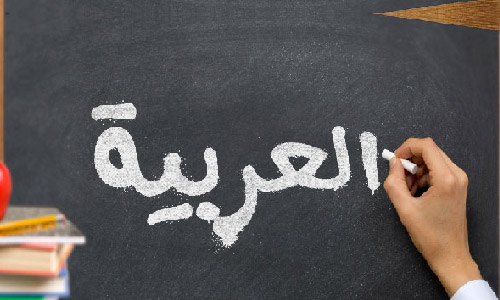Making important life decisions can feel overwhelming, especially when the stakes are high. Whether someone is choosing a life partner, considering a career change, or facing any significant crossroads, Islam provides a beautiful and powerful solution through Istikhara. This comprehensive guide explores everything one needs to know about this sacred practice of seeking Allah’s guidance.
What is Istikhara? Understanding This Sacred Islamic Practice
Istikhara, derived from the Arabic root “kh-y-r” meaning “goodness,” literally translates to “seeking goodness” or “asking for the best choice.” This beautiful Islamic practice involves turning to Allah Almighty when facing difficult decisions, asking Him to guide toward what is truly beneficial and steer away from what might cause harm.
The concept of Istikhara represents one of Islam’s most practical and spiritually enriching practices. It acknowledges human limitations in foreseeing the consequences of their choices and demonstrates complete trust in Allah’s infinite wisdom and knowledge.
When Should Someone Perform Istikhara?
Muslims are encouraged to perform Istikhara for various life situations, including:
- Marriage decisions – choosing a spouse or accepting a marriage proposal
- Career choices – job opportunities, business ventures, or educational paths
- Major purchases – buying a home, car, or making significant investments
- Travel plans – relocating to a new city or planning important journeys
- Medical decisions – choosing treatment options or healthcare providers
- Business partnerships – entering into new business relationships
The beauty of Istikhara lies in its versatility. Any decision that carries weight and uncertainty can benefit from this divine consultation.
The Prophet’s Guidance on Istikhara: Following the Sunnah
The practice of Istikhara comes directly from Prophet Muhammad (peace be upon him), making it an authentic Sunnah that Muslims have followed for over fourteen centuries. According to a hadith narrated in Sahih Bukhari, the Prophet (PBUH) would teach his companions the Dua e Istikhara just as carefully as he taught them verses from the Quran.
Jabir ibn Abdullah (may Allah be pleased with him) reported that the Messenger of Allah (PBUH) said: “When one of you intends to do something, let him pray two rak’ahs other than the obligatory prayer, then say…” followed by the complete Istikhara prayer.
This hadith demonstrates the importance Prophet Muhammad (PBUH) placed on seeking Allah’s guidance, treating it not as an optional practice but as essential spiritual guidance for his followers.
Complete Dua e Istikhara: Arabic Text, Transliteration, and Translation
Arabic Text:
اللَّهُمَّ إِنِّي أَسْتَخِيرُكَ بِعِلْمِكَ وَأَسْتَقْدِرُكَ بِقُدْرَتِكَ وَأَسْأَلُكَ مِنْ فَضْلِكَ الْعَظِيمِ فَإِنَّكَ تَقْدِرُ وَلاَ أَقْدِرُ وَتَعْلَمُ وَلاَ أَعْلَمُ وَأَنْتَ عَلاَّمُ الْغُيُوبِ اللَّهُمَّ إِنْ كُنْتَ تَعْلَمُ أَنَّ هَذَا الأَمْرَ خَيْرٌ لِي فِي دِينِي وَمَعَاشِي وَعَاقِبَةِ أَمْرِي أَوْ قَالَ عَاجِلِ أَمْرِي وَآجِلِهِ فَاقْدُرْهُ لِي وَيَسِّرْهُ لِي ثُمَّ بَارِكْ لِي فِيهِ وَإِنْ كُنْتَ تَعْلَمُ أَنَّ هَذَا الأَمْرَ شَرٌّ لِي فِي دِينِي وَمَعَاشِي وَعَاقِبَةِ أَمْرِي أَوْ قَالَ عَاجِلِ أَمْرِي وَآجِلِهِ فَاصْرِفْهُ عَنِّي وَاصْرِفْنِي عَنْهُ وَاقْدُرْ لِي الْخَيْرَ حَيْثُ كَانَ ثُمَّ رِضِّنِي بِهِ
Transliteration:
Allahumma inni astakhiruka bi’ilmika wa astaqdiruka bi qudratika wa as’aluka min fadlikal azeem, fa innaka taqdiru wa la aqdir, wa ta’lamu wa la a’lam, wa anta allamul ghuyub. Allahumma in kunta ta’lamu anna hadhal amra khayrun li fi dini wa ma’ashi wa aqibati amri, aw qala ajili amri wa ajilihi, faqdir-hu li wa yassir-hu li thumma barik li fihi. Wa in kunta ta’lamu anna hadhal amra sharrun li fi dini wa ma’ashi wa aqibati amri, aw qala ajili amri wa ajilihi, fasrifhu anni wasrifni anhu waqdir liyal khayra haythu kana thumma riddini bihi.
English Translation:
“O Allah, I seek Your guidance through Your knowledge, and I seek ability through Your power, and I ask You from Your great bounty. You have power and I have no power. You know and I do not know. You are the Knower of the unseen. O Allah, if You know that this matter is good for me in my religion, my livelihood, and the outcome of my affairs – or he said: in the immediate and distant future of my affairs – then ordain it for me, make it easy for me, and bless me in it. But if You know that this matter is bad for me in my religion, my livelihood, and the outcome of my affairs – or he said: in the immediate and distant future of my affairs – then turn it away from me and turn me away from it, and ordain for me what is good wherever it may be, then make me pleased with it.”
How to Perform Istikhara Properly: Step-by-Step Guide
Prerequisites and Preparation
Before performing Istikhara, one should ensure they are in a proper state of ritual purity (wudu/ablution). The heart and mind should be clear, focused solely on seeking Allah’s guidance rather than hoping for a specific outcome.
The Complete Procedure
Step 1: Perform Two Rak’ah Prayer Begin by offering two units of voluntary prayer (nafil). These should be performed with complete devotion and concentration, separate from any obligatory prayers.
Step 2: Recite the Istikhara Dua After completing the prayer and while still sitting, recite the complete Dua e Istikhara with sincerity and humility.
Step 3: Specify Your Matter When reaching the phrase “this matter” (hadhal amr) in the dua, clearly mention the specific decision or situation in your heart or quietly with your tongue.
Step 4: Make Additional Supplications After completing the main dua, feel free to make additional personal supplications, asking Allah for guidance and expressing your complete trust in His wisdom.
Best Times for Istikhara
While Istikhara can be performed at any permissible time, certain periods are considered more blessed:
- After Fajr prayer – the early morning hours are spiritually powerful
- Before Maghrib – the time just before sunset
- During the last third of the night – when Allah’s mercy is especially abundant
- Between Maghrib and Isha – another blessed period for supplications
Understanding Allah’s Response: Signs and Guidance After Istikhara
Many people wonder how they will recognize Allah’s guidance after performing Istikhara. The response doesn’t always come in dramatic or obvious ways, but rather through subtle signs that require patience and spiritual awareness to recognize.
Common Ways Allah Responds to Istikhara
1. Dreams and Visions Some individuals may receive guidance through dreams, though this is not guaranteed or required. If someone does experience a meaningful dream, they should seek interpretation from knowledgeable Islamic scholars.
2. Feelings of Ease or Discomfort Often, Allah guides through the heart. A person might feel increasingly comfortable and at peace when thinking about one option, while feeling uneasy or restless about another.
3. Opening or Closing of Opportunities Sometimes the guidance comes through practical circumstances. Doors may open unexpectedly for the right choice, while obstacles may appear for options that aren’t beneficial.
4. Advice from Righteous People Allah may send guidance through the counsel of wise, religious individuals who offer insights that resonate deeply with the person’s situation.
The Importance of Patience
One crucial aspect of Istikhara that many overlook is the need for patience. Allah’s timing is perfect, and His response may not come immediately. Some people receive clear guidance within days, while others may need to wait weeks or even months. This waiting period is itself a form of spiritual growth and trust-building.
Common Misconceptions About Istikhara
Myth 1: Istikhara Guarantees Specific Dreams
Many people believe that performing Istikhara will automatically result in prophetic dreams or clear visions. While some individuals do receive guidance through dreams, this is not the only or even primary way Allah responds to Istikhara.
Myth 2: Immediate Results Are Required
Some expect instant answers after performing Istikhara once. In reality, the guidance may come gradually, and some scholars recommend repeating the prayer for up to seven days when dealing with major decisions.
Myth 3: It Replaces Practical Effort
Istikhara is not a substitute for research, consultation, and practical planning. It should complement, not replace, reasonable human effort and decision-making processes.
Myth 4: It’s Fortune-Telling
Istikhara is not about predicting the future or seeking supernatural knowledge. It’s about asking Allah to guide toward what is truly beneficial and away from what might cause harm.
Practical Tips for Effective Istikhara Practice
Combining Istikhara with Consultation (Mashwara)
Islam encourages both seeking Allah’s guidance through Istikhara and consulting with knowledgeable, trustworthy people. The Quran mentions consultation as a praiseworthy quality of believers, so combining both approaches provides a comprehensive decision-making framework.
What to Do When Signs Aren’t Clear
If after performing Istikhara multiple times the guidance still isn’t clear, consider these approaches:
- Continue with practical research and consultation
- Look for patterns in how events unfold naturally
- Trust that Allah’s silence may itself be guidance to proceed with what seems most reasonable
- Seek advice from Islamic scholars or spiritual mentors
Frequency and Repetition
While there’s no strict rule about how many times to perform Istikhara, many scholars suggest that for major life decisions, it can be repeated for up to seven consecutive days. Each session should be performed with fresh sincerity and openness to Allah’s guidance.
The Spiritual Benefits of Regular Istikhara Practice
Strengthening the Connection with Allah
Regular practice of Istikhara deepens one’s relationship with Allah by acknowledging dependence on His wisdom and guidance. This practice cultivates humility and reinforces the believer’s recognition of Allah’s sovereignty over all affairs.
Developing Trust in Divine Wisdom
Through Istikhara, Muslims learn to trust that Allah’s knowledge encompasses all outcomes and consequences that human understanding cannot foresee. This trust brings peace even when immediate results aren’t apparent.
Finding Peace in Decision-Making
One of the most immediate benefits of Istikhara is the sense of peace it brings to the decision-making process. Instead of being overwhelmed by uncertainty, believers can feel confident that they have sought the best possible guidance.
Building Spiritual Discipline
The regular practice of Istikhara, with its requirement for prayer, reflection, and patience, helps build overall spiritual discipline and mindfulness in daily life.
Istikhara for Different Life Situations
Marriage and Relationships
When considering marriage proposals or relationship decisions, Istikhara takes on special significance. The choice of a life partner affects not only this world but also one’s spiritual journey. Many couples who performed Istikhara before marriage report feeling a deep sense of confidence and blessing in their decision.
Career and Business Decisions
Professional choices often involve complex factors that are difficult to evaluate completely. Istikhara can provide clarity when weighing job offers, considering career changes, or starting business ventures. The prayer helps individuals consider not just financial benefits but also the impact on their spiritual life and overall well-being.
Educational Choices
Students facing decisions about universities, fields of study, or educational paths can benefit greatly from Istikhara. The guidance received often leads to choices that align with both practical success and spiritual growth.
Making the Final Decision After Istikhara
Once someone has performed Istikhara and observed the signs and feelings that follow, the final step involves making the actual decision. This requires courage and trust in the process, even when the guidance received might differ from personal preferences.
Moving Forward with Confidence
When the signs point toward a particular choice, it’s important to move forward with confidence and commitment. Second-guessing the guidance received can lead to unnecessary anxiety and missed opportunities.
Accepting Outcomes with Grace
Part of the wisdom of Istikhara is learning to accept outcomes with grace, trusting that whatever unfolds is ultimately for the best, even if it doesn’t align with immediate desires or expectations.
Conclusion: Embracing Divine Guidance in Daily Life
Istikhara represents one of Islam’s most beautiful and practical teachings, offering believers a direct connection to divine wisdom in times of uncertainty. This sacred practice transforms decision-making from a source of anxiety into an opportunity for spiritual growth and deeper faith.
The beauty of Istikhara lies not just in the guidance it provides, but in the process itself. Through this practice, Muslims learn to surrender their limited understanding to Allah’s infinite wisdom, finding peace in the knowledge that they have sought the best possible guidance for their decisions.
Whether facing major life choices or smaller daily decisions, incorporating Istikhara into one’s spiritual practice can bring tremendous benefits. It strengthens faith, provides peace of mind, and helps individuals align their choices with divine wisdom rather than relying solely on human understanding.
For those who haven’t yet experienced the beauty of this practice, starting with smaller decisions can help build familiarity and confidence. As trust in the process grows, Istikhara can become a source of strength and guidance for all of life’s important moments.
Remember that Istikhara is not just about getting the “right” answer—it’s about developing a relationship with Allah that acknowledges His sovereignty over all affairs and trusts in His perfect timing and wisdom. Through this beautiful practice, believers can navigate life’s complexities with confidence, knowing they have sought the best possible guidance from the One who knows all things, seen and unseen.








